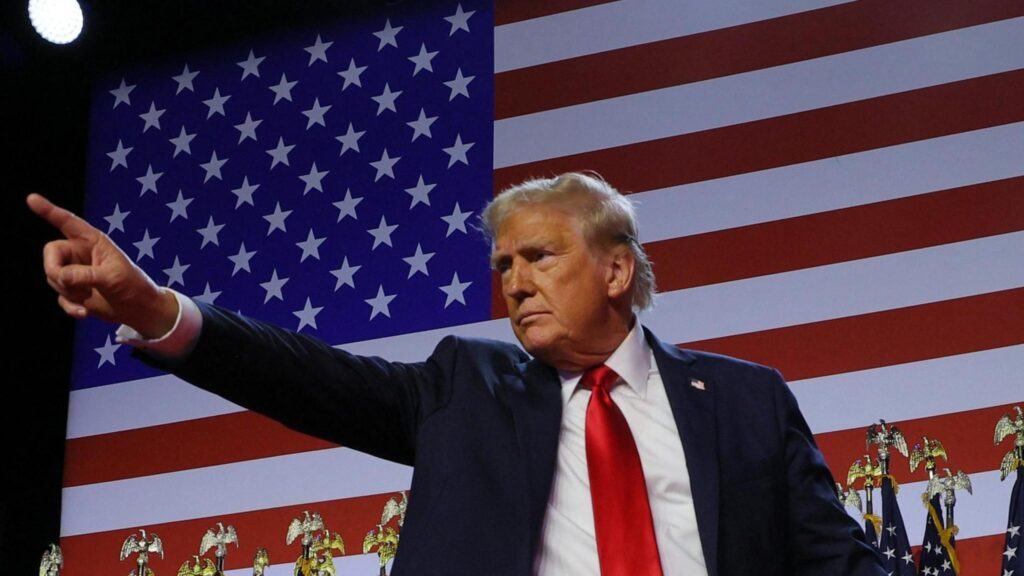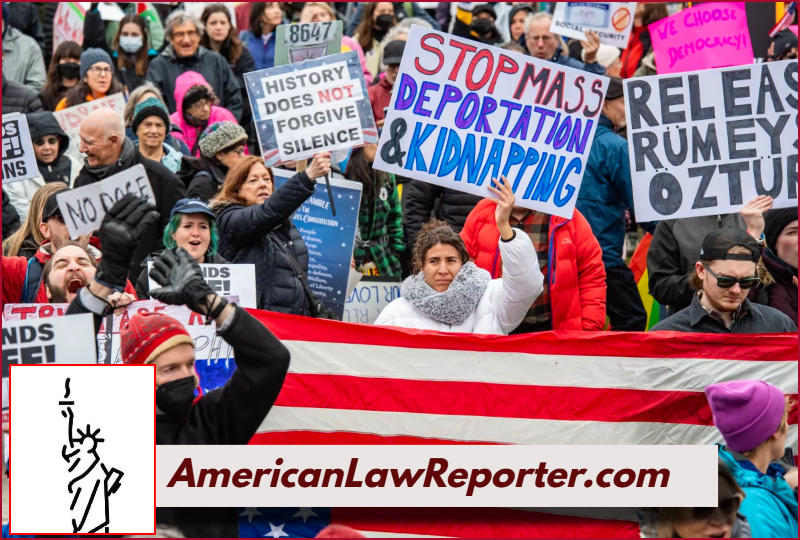Student worker unions across the U.S. are facing increasing legal uncertainty as the Trump administration steps up efforts to discipline pro-Palestine protestors, threatens university funding, and reshapes labor law oversight through a more conservative National Labor Relations Board (NLRB).
The administration’s sweeping response to last year’s campus protests has placed unions in a bind. Universities have already suspended or expelled hundreds of students.
Now, the federal government is pressuring schools with threats to pull hundreds of millions in higher education funding unless they comply with White House directives targeting what it labels antisemitic activity.
The situation has been compounded by the revocation of at least 300 student visas, arrests of foreign students, and the detainment of high-profile graduate students, including Columbia University’s Mahmoud Khalil—a green card holder.

Labor law experts say this could significantly curtail union efforts to advocate for students engaged in political expression.
“Their status as employees is in jeopardy,” said Michael Duff, labor law professor at Saint Louis University. “Which means their right to engage in protest as workers, whether unionized or nonunionized, is also in jeopardy.”
Encampments and Escalations
Following widespread encampments and pro-Palestinian demonstrations at more than 100 U.S. universities in 2024, graduate student unions rushed to file unfair labor practice (ULP) charges against schools like Harvard, Brown, and the University of Southern California.
These complaints, still pending, allege rule changes, surveillance of union members, and the denial of union access and representation—actions the unions argue were retaliatory.
But the legal climate has shifted dramatically since the 2024 elections.
The January 2025 firing of NLRB General Counsel Jennifer Abruzzo, who had signaled support for linking protest rights to workplace conditions, left unions without a sympathetic federal advocate.
Her replacement, Acting GC William Cowen, is expected to roll back many of her pro-labor interpretations, pending confirmation of Crystal Carey, a partner at Morgan, Lewis & Bockius LLP, who has not publicly commented but is widely believed to favor employer-friendly rulings.
The NLRB is currently without a quorum following the Supreme Court’s temporary approval of Trump’s firing of Democratic member Gwynne Wilcox, throwing further doubt on the agency’s ability to adjudicate union claims.
Columbia: A Flashpoint
The Student Workers of Columbia (SWC) union is now weighing its next steps after 22 student protestors, including former union president Grant Miner, were expelled in March. SWC spokesperson Caitlin Liss said the union is demanding reinstatement of the disciplined students and for the university to become a “sanctuary campus” for immigrants.
Liss noted a sharp rise in fear among international students after Khalil’s arrest and said Columbia has “done nothing to protect them.” She also confirmed that the union’s initial bargaining session for a new labor contract—scheduled one day after the March expulsions—was canceled by the university and hasn’t resumed.
Columbia filed its own ULP charge against the union on March 7, alleging bad-faith bargaining. The university has not responded to requests for comment.
Legal and Political Stakes
The NLRB’s 2016 Columbia University decision granted student workers legal recognition as employees—a status that underpins all collective bargaining in higher education. But that precedent could now be at risk.
During Trump’s first term, unions hesitated to file representation petitions over fears the Board would reverse course. Legal experts anticipate a similar retreat, especially given current political signals.
“It’s not complicated—the unions are on shaky legal ground right now,” said Duff.
Revoking student workers’ employee status could invalidate collective bargaining agreements nationwide, undermining protections over wages, working conditions, and academic freedom.
Still, organizers are not backing down entirely. Unions like the Georgetown Alliance of Graduate Employees are now pushing for stronger contractual protections for international students and immigrant scholars, as fear and detentions rise.
“There is now an urgency for protections that wasn’t necessarily there before,” said organizer Ethan Weisbaum, citing the recent detainment of Georgetown postdoctoral fellow Dr. Badar Khan Suri.
Labor law professor Risa Lieberwitz of Cornell University stated that academic freedom and collective bargaining go hand in hand.
“Academic freedom is the bread and butter of collective bargaining in higher education,” she said. “It’s just as concrete as compensation.”

